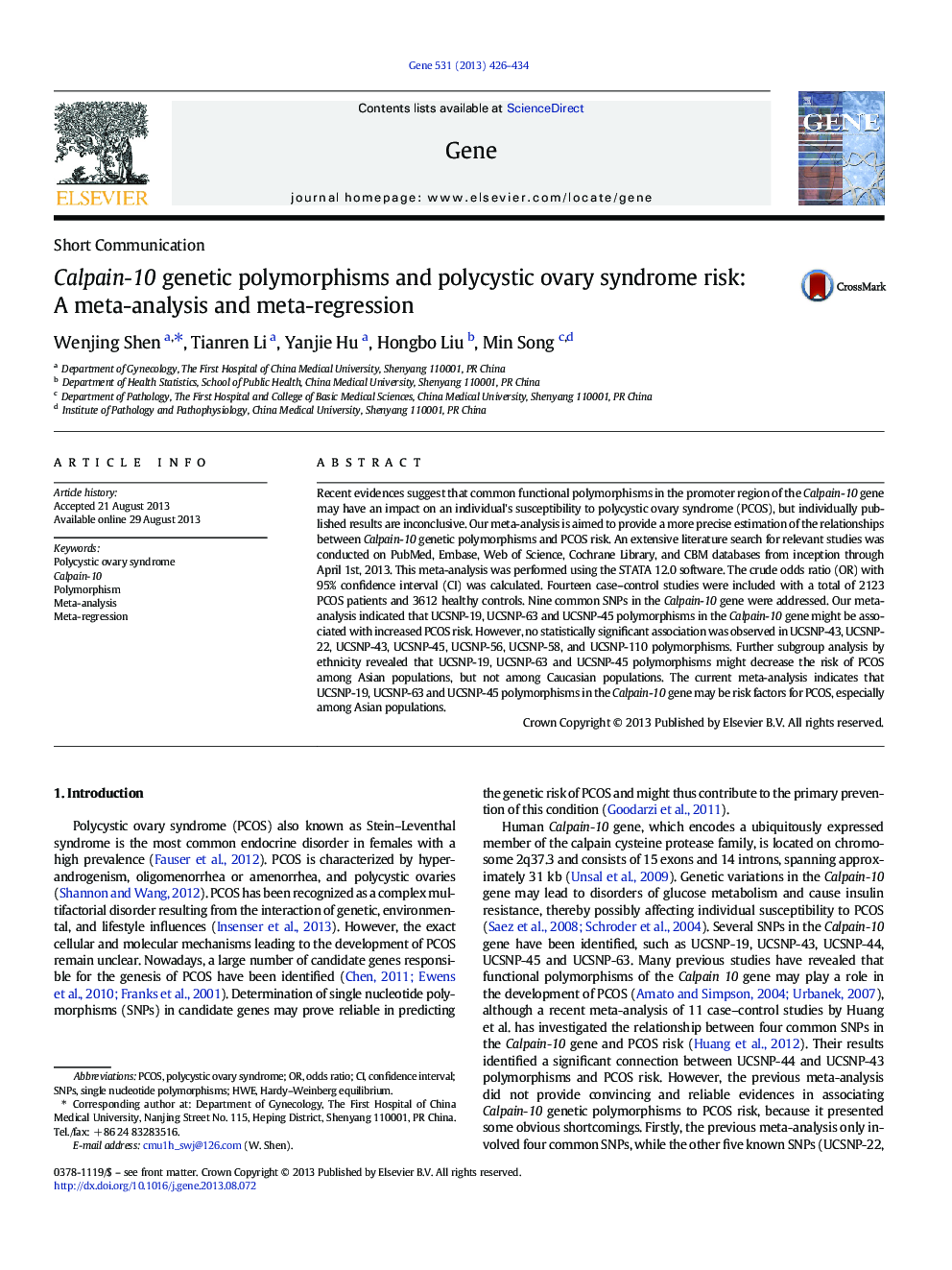| Article ID | Journal | Published Year | Pages | File Type |
|---|---|---|---|---|
| 2816871 | Gene | 2013 | 9 Pages |
•Meta-analysis of the relationships between Calpain-10 SNPs and PCOS risk•UCSNP-19/-63/-45 may be associated with increased PCOS risk.•Calpain-10 SNPs may be useful biomarkers for PCOS risk.•This meta-analysis will be helpful in clarifying current controversies.
Recent evidences suggest that common functional polymorphisms in the promoter region of the Calpain-10 gene may have an impact on an individual's susceptibility to polycystic ovary syndrome (PCOS), but individually published results are inconclusive. Our meta-analysis is aimed to provide a more precise estimation of the relationships between Calpain-10 genetic polymorphisms and PCOS risk. An extensive literature search for relevant studies was conducted on PubMed, Embase, Web of Science, Cochrane Library, and CBM databases from inception through April 1st, 2013. This meta-analysis was performed using the STATA 12.0 software. The crude odds ratio (OR) with 95% confidence interval (CI) was calculated. Fourteen case–control studies were included with a total of 2123 PCOS patients and 3612 healthy controls. Nine common SNPs in the Calpain-10 gene were addressed. Our meta-analysis indicated that UCSNP-19, UCSNP-63 and UCSNP-45 polymorphisms in the Calpain-10 gene might be associated with increased PCOS risk. However, no statistically significant association was observed in UCSNP-43, UCSNP-22, UCSNP-43, UCSNP-45, UCSNP-56, UCSNP-58, and UCSNP-110 polymorphisms. Further subgroup analysis by ethnicity revealed that UCSNP-19, UCSNP-63 and UCSNP-45 polymorphisms might decrease the risk of PCOS among Asian populations, but not among Caucasian populations. The current meta-analysis indicates that UCSNP-19, UCSNP-63 and UCSNP-45 polymorphisms in the Calpain-10 gene may be risk factors for PCOS, especially among Asian populations.
